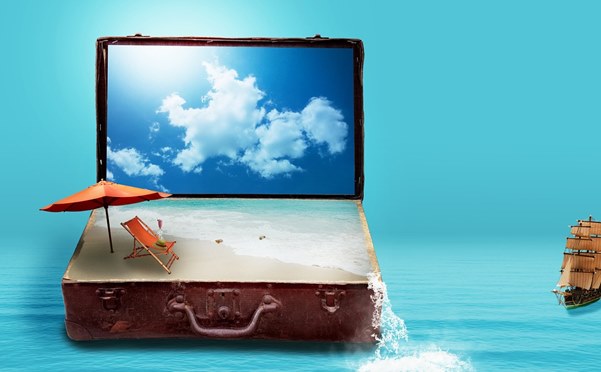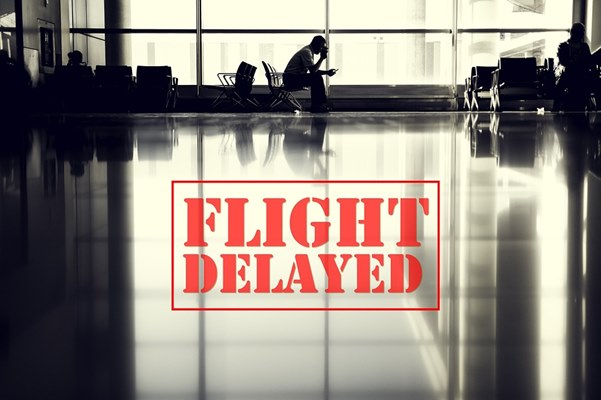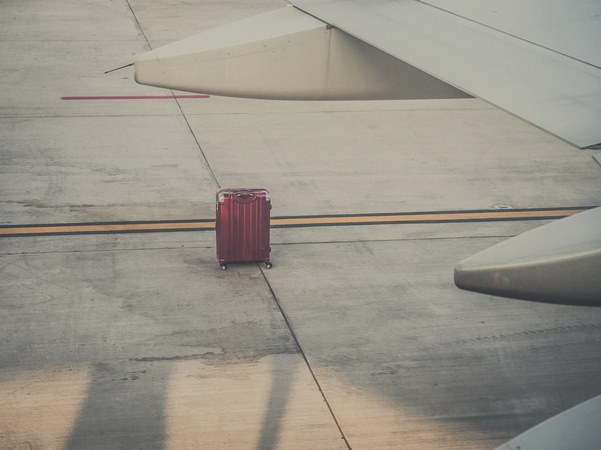Traveling is a desirable experience for almost everyone. It relieves stress, boosts creativity, promotes learning, and makes unforgettable memories. However, an unexpected event can turn traveling into a nightmare, costing you hundreds, if not thousands, of dollars. Is travel insurance worth buying?
Savvy travelers increasingly opt for travel insurance to protect against travel-related risks and financial losses. 38% of travelers buy travel insurance. Travel risks can be minor inconveniences like delayed flights or serious problems like severe injuries and medical emergencies. So, is travel insurance worth it? Here are seven reasons the policy is invaluable.
1. Travel Insurance Protects Against Trip Cancelation and Curtailment
Sincerely, even perfectly planned trips can get canceled. Primary reasons for trip cancellation include illness, unexpected death, bad weather, acts of terrorism, civic duty, and disasters at home or destination. For instance, a few days before your travel date, a loved one may fall sick or die, or a calamity strikes your destination, forcing you to cancel.
When this happens, most travel agencies, airlines, and hotels provide minimal to no refunds, especially when canceling at the last minute. Consequently, you lose a significant part of your hard-earned money, lowering the chances of postponing your trip.
With travel insurance, you get trip cancellation coverage, compensating you for prepaid and nonrefundable trip expenses for a covered reason. According to Business Insider, 13% of travelers purchase cancellation insurance. So, whether you have purchased personal or business travel insurance, you get your money back, preventing financial loss, and you can book another trip in the future.
However, if you cancel your trip for an uncovered reason, would you be eligible for reimbursement? If your travel insurance includes canceling for any reason (CFAR) coverage, you get partial compensation for lost trip money.
Most travel insurance policies also cater for trip curtailment, whereby you cut short a trip for unavoidable reasons. For instance, if a travel companion gets injured while traveling, the policy reimburses the unused portion of the journey. Additionally, the insurance provider pays for the return flight, which may be costly due to the short notice.
2. Travel Insurance Covers Medical Emergencies

While traveling to a destination with a different climate, culture, and dietary habits is fun and offers an exciting learning opportunity, it can quickly become a nightmare when you become ill. According to the CDC, animals, extreme temperatures, contaminated food and drink, and bug bites are prominent for causing diseases and disrupting travel.
A medical emergency during travel, such as trauma, broken bones, and stroke, can result in substantial unexpected medical expenses, draining your traveling budget and finances.
Fortunately, with travel insurance, you don’t have to bear the mental and financial stress of becoming ill away from home. Instead, the insurance pays for any medical expenses incurred, from the cost of hospitalization to doctor fees, ambulance service, lab tests, and medication.
Some policies go the extra mile to provide a daily stipend for nonmedical costs, so you don’t incur any out-of-pocket expenses. Additionally, comprehensive travel medical insurance offers post-hospitalization prices for a given duration. Hence, you must confirm the type of medical coverage your chosen policy provides for optimal benefits.
3. Travel Insurance Shields from Travel Delays

A flight delay can ruin your vacation, distort your itinerary and have unforeseen financial implications. Weather conditions, staffing issues, security concerns, overbooking, and connecting flights are prominent for causing flight delays.
Travel insurance protects against these travel mishaps, ensuring you stay within budget. It reimburses for costs relating to travel delays, from meals to hotels and lost prepaid expenses. A simple compensation for an airport lunch or extra night at a hotel can ease the headache of travel delay.
If a travel delay causes a missed connection, travel insurance is invaluable. As long as the policy covers the reason for the missed connection –perhaps a mechanical failure or adverse weather, you receive compensation to cater to additional travel expenses and catch up on your trip.
4. Travel Insurance Caters to Exorbitant Emergency Medical Evacuations
Did you know that emergency evacuation, whether due to a medical emergency or crisis in a destination, costs more than $100,000? In other parts of the world, it can cost up to six figures.
Suppose you are vacationing at Mt Everest in Nepal and get severely injured or had a medical emergency –say heart attack. You must be airlifted from the mountainside to a nearby health facility and later flown back home.

Travel insurance with medical evacuation comes in handy in such a situation and pays for transportation to a high-quality facility and treatment expenses. It can also pay for a bedside companion, costs for children to fly home, and medical escort on your return home.
One thing that stands out in this policy is that you are not taken to the nearest healthcare facility –many facilities in low and medium-income countries are ill-equipped and lack medical personnel and supplies. Instead, the evacuation team takes you to a facility equipped for your unique condition or injury, increasing the chance of getting quality care and recovery.
Some policies allow you to choose the facility, while others don’t. Nevertheless, most policies cover repatriation costs, where you are flown back home when stable. Moreover, in case of death, repatriation of remains can be covered. Thanks to this coverage, you don’t have to worry about the logistics and costs of medical evacuations in a foreign land.
Typically, a comprehensive travel insurance policy covers medical evacuation. The amount covered depends on the plan, care required, and location. Some policies offer up to $1 million per person for medical evacuation. While this seems like plenty of money, it is not since the evacuation costs add up quickly.
Travel insurance with medical evacuation is an excellent option for adventurous travelers and those traveling to remote destinations. For example, medical evacuation becomes handy if someone sustains a severe injury when hiking or canoeing. Likewise, the cover can help when you fall ill in a remote African country.
5. Travel Insurance Provides Overseas Health Coverage
Some people fail to purchase travel insurance, thinking their health insurance will rescue them if they fail ill when traveling. While this may be true when vacationing locally, international travel is different.
Most foreign medical facilities do not accept US insurance covers and require upfront cash payment. The US Department of State affirms that Medicare only offers coverage in the US, necessitating people to acquire travel insurance when visiting foreign countries. Travel insurance with medical coverage offsets any medical expenses when traveling.
6. Travel Insurance Protects Your Baggage

A delayed or canceled flight is every traveler’s biggest nightmare. However, getting to your destination to learn that your luggage is missing is a huge disaster. While baggage handling is increasingly becoming efficient due to technological advances, baggage loss and damage are still commonplace.
In every 100,000 bags checked, 480 get lost, delayed, or damaged. Because of this, you incur unexpected costs replacing personal possessions. In fact, many travelers lose irreplaceable items such as valuable jewelry and family heirlooms.
While losing baggage is irritating and inconvenient, a travel insurance policy with baggage insurance can make it bearable. You can file a claim and have the insurance provider compensate you for your belongings. However, most policies have caps and exclusions for specific items, so don’t expect the full amount to replace your possessions.
Most policies cover any related expenses if your baggage is misplaced or delayed. For instance, you may need to purchase toiletries and a few clothes until you get your luggage. In addition, travel insurance ensures that travel mishaps don’t get in the way of your vacation or business trip.
7. Travel Insurance Saves Money
Contrary to the common belief that travel insurance is an additional cost to your travel plans, it saves you money in several ways. It protects against travel uncertainties and surprises, which may cost more money when they occur than what you pay for the policy. For instance, medical emergencies and evacuations are costlier than the policy.
To minimize travel insurance costs, research and compare providers to find one that offers what you need and avoid overpaying. That means you should know what you want to cover before shopping for an insurance cover. For instance, do you need health coverage or just want to be covered in case of emergencies?
Another way to save money on your insurance coverage is to buy it early, as buying it at the last minute means you may have to spend more. Additionally, it gives you ample time to find the best cover with better terms, like coverage for trip cancellation.
Summary
Buying travel insurance is a smart way to secure your trips. It offers a safety net should an unexpected event happen when traveling, such as trip cancellation and delay, injury, or health emergency. In addition, travel insurance is affordable, making it worthwhile.
When purchasing travel insurance, it is best practice to check the type of coverage offered. Do your research and opt for coverage that meets your travel needs and offers adequate coverage. Protect yourself from mental and financial stress when traveling and buy travel insurance!


